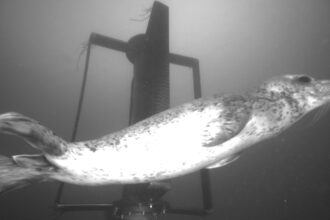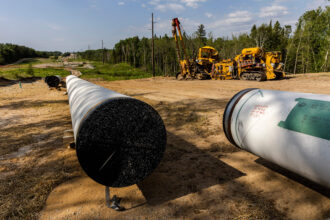Obama Presses Dems for Quick Action on Climate Bill (Washington Post)
After the meeting with the president, Rep. Rick Boucher, a key swing vote on the Energy and Commerce Committee, said he and other Democrats were "making real progress" in hammering out a compromise.
Waxman May Fast Track Climate Bill (Politico)
House Energy and Commerce Committee Chairman Henry Waxman told reporters: ”I’m still holding firm on my deadline to get a bill out of committee by the end of May and I believe that will probably require us to go right to the full committee and bypass the subcommittee.”
China Hydropower ‘Subprime Carbon’ Flood May Slow (Reuters)
China’s booming hydropower sector is facing mounting criticism for generating "subprime carbon" credits from projects that don’t need extra earnings to succeed, putting billions of dollars of clean energy investments at risk.
Environmental Groups: Sunflower Deal Is Bad For Kansas (Journal-World)
The offsets in the new governor’s "renewable energy" deal with Sunflower Electric are highly questionable, and under the settlement, Sunflower may apply to build more coal-burning plants in less than two years.
Congress Climate Forecast: Sporadic Showers of Money (New York Times)
In the first quarter of this year alone, dozens of companies have doubled the money paid to hired advocates pushing a particular point of view about global warming.
Indian Ocean Buoys Help Solve Climate Puzzles (Reuters)
A vast network of research buoys across the tropical Indian Ocean is helping farmers better plan their crops and to unlock the climate secrets of one of the least studied expanses of water, a team of scientists say.
Anaconda Wave-Power Generator Snakes into Next Stage of Production (Guardian)
The snake-like device is at the forefront of a new generation of wave-power machines that could slash renewable energy costs.
EPA Could Save a Dying Chesapeake Bay (Baltimore Sun)
It could stop issuing permits for new development, sewage treatment plants and industry that increase pollution in local waterways, and deny air pollution permits for all new coal-fired power plants.
Global Warming Threatens Tibet Railway (Reuters)
China’s controversial railway to the remote and restless mountainous region of Tibet could be threatened by global warming, which may melt the permafrost on which the tracks are built, state media said today.
Antarctic Offers Clues about Future Climate Change (Telegraph)
Highway-sized troughs under the ocean in Antarctica carved by glaciers thousands of years ago could show how climate change will affect sea level rises in the future, according to scientists.
Renewable Energy Rebates Suffer Cutback (News Journal)
Delaware has scaled back a popular rebate program that covered up to 50 percent of the cost of installing private solar, wind or geothermal systems. Officials cited high demand and long waits for cutting the rebate to 25 percent.
Houston Kicks in for Solar Homes for Poor (Chronicle)
The Texas city initiated a program to subsidize solar-powered, hyper-energy-efficient homes for low-income residents, among the first of its kind nationwide.
Not so Nice: France Fears Climate Change Will Hit Tourism (Reuters)
Tourism makes up 6% of France’s gross domestic product thanks to its sunny coast, lavender fields, ski resorts and art-rich cities, but a government report out today says global warming could change that.
About This Story
Perhaps you noticed: This story, like all the news we publish, is free to read. That’s because Inside Climate News is a 501c3 nonprofit organization. We do not charge a subscription fee, lock our news behind a paywall, or clutter our website with ads. We make our news on climate and the environment freely available to you and anyone who wants it.
That’s not all. We also share our news for free with scores of other media organizations around the country. Many of them can’t afford to do environmental journalism of their own. We’ve built bureaus from coast to coast to report local stories, collaborate with local newsrooms and co-publish articles so that this vital work is shared as widely as possible.
Two of us launched ICN in 2007. Six years later we earned a Pulitzer Prize for National Reporting, and now we run the oldest and largest dedicated climate newsroom in the nation. We tell the story in all its complexity. We hold polluters accountable. We expose environmental injustice. We debunk misinformation. We scrutinize solutions and inspire action.
Donations from readers like you fund every aspect of what we do. If you don’t already, will you support our ongoing work, our reporting on the biggest crisis facing our planet, and help us reach even more readers in more places?
Please take a moment to make a tax-deductible donation. Every one of them makes a difference.
Thank you,











